Home >Technology peripherals >AI >To wink at a blind man? Microsoft and Google's AI ads boycotted by advertisers
To wink at a blind man? Microsoft and Google's AI ads boycotted by advertisers
- 王林forward
- 2023-06-11 09:27:301131browse
Advertising is undoubtedly one of the most core monetization methods in the entire Internet industry. In the current wave of generative AI, using artificial intelligence to empower advertising has become a goal pursued by many technology companies, such as Google, Meta, and Microsoft. The companies claim their generative AI advertising tools can make advertising more effective, but appear to have caused dissatisfaction among some advertisers.
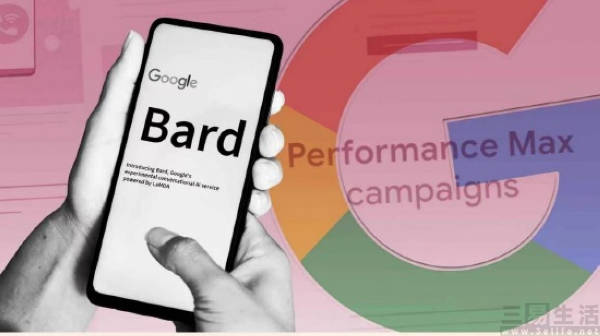
Recently, it was reported that in response to the AI advertising plans of technology companies, some advertisers said that both Google and Microsoft inserted advertisements into their own AI search engines, and there were no options to exit or close them. Regardless of whether the advertiser agrees or not, everyone must participate in Google and Microsoft's AI advertising projects.
Why are advertisers not interested in it even though it is a tool that can improve advertising performance? You know, in Google's introduction, generative AI is a tool that will make advertising efficiency jump from the most upstream production to the most downstream distribution. In Google's demo DEMO for advertisers, it describes how to input text, images, videos and other content into the system, and only needs to provide "creative content" related to the advertising theme, and the system will be based on audience and sales. Target and other information to "recombine" these materials to generate ads tailored to consumers.
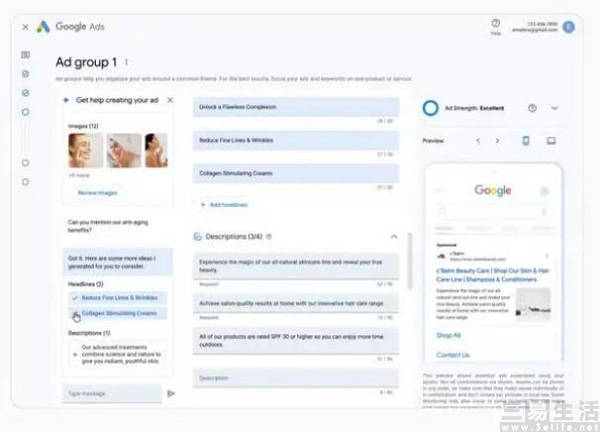
According to Google, after generative AI is combined with advertising, advertisers will have automated technologies including bidding, budget optimization, audience, creativity, and attribution, and can customize advertising expenditures through machine learning algorithms. AI will also tell them the optimal solution for where to place ads and how to spend their marketing budget to help advertisers get more opens, clicks and conversions.
In the past, advertisers needed to make trial and error selections among a large number of different types of creatives to adapt to different audience groups before placing them. The intervention of AI puts user needs in front, allowing the screening process to be completed in a shorter time. Based on the differences in preferences of the target group, content suitable for different groups is created in a style that is closer to the user's preference to enhance content marketing. its own conversion efficiency.

In fact, the value of AI advertising lies in its ability to quickly determine what content target users like to watch based on complex advertising content and feedback data, and then generate relevant content. In other words, generative AI provides solutions that are infinitely close to customized marketing to meet the needs of advertisers.
Generative AI advertising, especially the addition of AI to search engine advertising, is also widely considered to be able to subvert the original way advertisers reach consumers through search results advertising. MAGNA Research predicts that the search advertising market will expand 10% this year to reach $286 billion. Obviously, the contribution of generative AI cannot be ignored, because even in the current relatively severe market environment, search engine advertising can have such optimistic expectations.
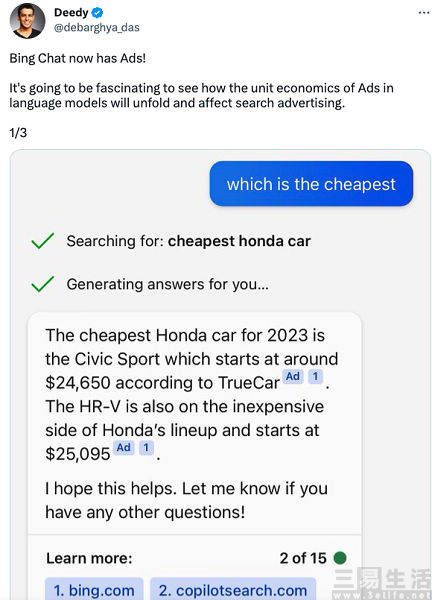
Currently, in Microsoft's New Bing and Google's Bard, the combination of generative AI and search engines also has an upgrade that cannot be ignored in terms of experience. Previously, under the operating mode of traditional search engines, users had to break down complex questions into multiple questions, and then use keywords to find answers. But now AI search no longer needs to accurately describe keywords, as long as there are suitable With the prompt word (Prompt), AI can accurately understand what you mean, generate the content the user wants, and give relevant references. The fuzzy search is even more accurate than relying solely on keyword searches.
If you look purely from the perspective of technology companies such as Google and Microsoft, using AI to empower advertising will undoubtedly be a "sexy" business, or even tantamount to an efficiency revolution. However, advertisers have a different view. First of all, the conversation mode of generative AI in the field of search actually lurks the problem of changing user habits, but users may not be willing to change their habits. In other words, the number of users currently using New Bing or Bard is still relatively small.
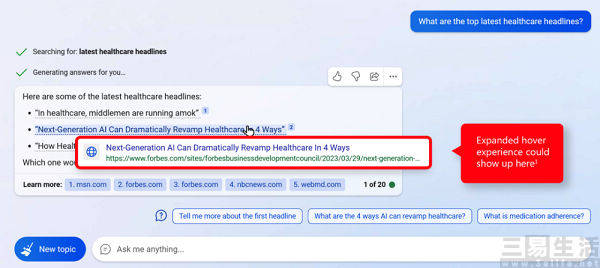
Obviously, this concern of advertisers is justified. Although AI search is indeed very interesting, traditional search itself is not unusable after more than 20 years of polishing. After all, there are always a minority of users who like to try new things, so to a certain extent, AI advertising means that the advertiser’s budget is spent on functions that only a few users use, and it has no advantage in terms of cost performance.
Advertisers often require their ads to be displayed in specific locations to avoid their ads appearing alongside inappropriate content. For example, when a user searches for Pepsi-Cola, the search results ad area displays ads for Coca-Cola. It’s just that in the current AI advertising system, advertisers essentially have no control over when and where ads appear. Microsoft and Google have not told advertisers the logic of how ads appear.
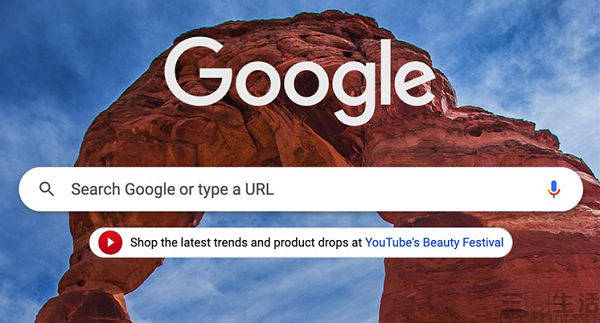
There is no doubt that this will make advertisers feel very uneasy. You must know that technology has no morals or values, but human beings are bound by morality. The current working model of AI advertising means that it will definitely cater to the preferences of various groups of people. However, in the current context of the proliferation of "Internet trolls" and negative emotions, it may be a high probability that AI advertising will "learn bad things". But advertisers obviously prefer stability, and AI advertising will inevitably encounter problems of out of control.
In addition, what is even more unacceptable to advertisers is that, whether due to confidentiality requirements, companies such as Microsoft are extremely lack of transparency in AI advertising projects, and they will not explain which search keywords will trigger ads for specific brands. Show up in response results from generative AI, or how well those ads perform compared to traditional search ads. To put it in advertiser terms, you could say: "Our clients don't have direct access to reports on how often their ads were exposed to the Bing chatbot." ”

Therefore, in the eyes of some advertisers, companies such as Microsoft and Google are arrogant in their AI advertising projects. They are more concerned about combining AI advertising with their own business streams to tell a wonderful story to the capital market. , but ignores the interests of advertisers who pay real money.
The above is the detailed content of To wink at a blind man? Microsoft and Google's AI ads boycotted by advertisers. For more information, please follow other related articles on the PHP Chinese website!
Related articles
See more- Technology trends to watch in 2023
- How Artificial Intelligence is Bringing New Everyday Work to Data Center Teams
- Can artificial intelligence or automation solve the problem of low energy efficiency in buildings?
- OpenAI co-founder interviewed by Huang Renxun: GPT-4's reasoning capabilities have not yet reached expectations
- Microsoft's Bing surpasses Google in search traffic thanks to OpenAI technology

